You'll transform your sun-cooked meals from bland to extraordinary with these three essential spicing techniques. First, marinate your ingredients for 1-12 hours using olive oil, herbes de Provence, and acidic components to guarantee deep flavor penetration. Second, double your usual spice portions since solar cooking tends to mellowing flavors – this applies especially to base spices like garlic and onion powder. Third, bloom your spices in high smoke point oil before adding them to your solar cooker to release their full potential. Master these professional solar chef secrets, and you'll open up a world of vibrant, flavorful dishes.
Marinating for Solar Cooking
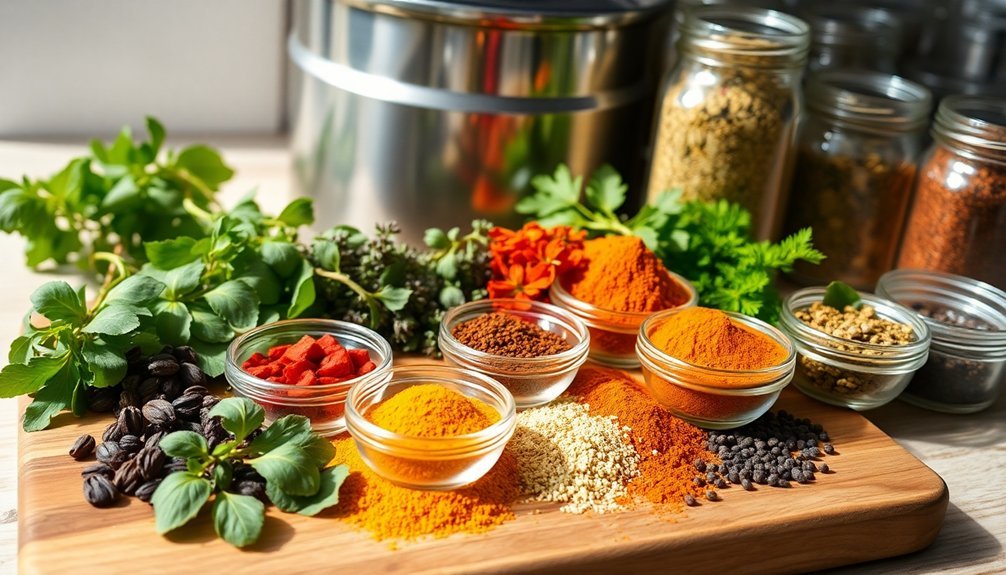
When preparing food for solar cooking, marinating is an essential step that can transform your dishes from ordinary to extraordinary.
You'll want to plan your marinating time between 1 to 12 hours, depending on how intense you'd like the flavors to be. The longer you marinate, the more the flavors will penetrate the meat.
Create your marinade using a balanced mix of olive oil, herbes de Provence, and acidic ingredients like lemon juice. Cut your chicken into large uniform cubes before marinating to ensure even flavor absorption.
Don't forget to include both the squeezed juice and lemon pieces in your marinade – they'll help maintain juiciness during cooking. Add garlic and other aromatics for depth, and always season with salt and pepper.
Remember that since solar cooking takes longer than conventional methods, a well-marinated dish will develop even richer flavors during the slow cooking process.
Double Your Spice Portions
Building on the art of marination, the unique nature of solar cooking requires a bold approach to spicing. You'll need to double your usual spice portions since solar cooking can mellow flavors considerably. Start with twice the amount of your base spices like garlic and onion powder, then layer in doubled portions of warming spices such as cumin and cinnamon. Studies show that ginger reduces inflammation when used liberally in cooking.
| Base Spices | Mid-Layer Spices | Finishing Spices |
|---|---|---|
| Garlic Powder (2x) | Cumin (2x) | Fresh Basil (2x) |
| Onion Powder (2x) | Cinnamon (2x) | Oregano (2x) |
| Chile Powder (2x) | Nutmeg (2x) | Parsley (2x) |
| Salt (add last) | Cloves (2x) | Dried Cranberries |
Remember to store your doubled portions in airtight containers to maintain potency. This enhanced spicing approach not only maximizes flavor but also guarantees you'll get the full health benefits from anti-inflammatory spices like turmeric and ginger.
Blooming Spices Before Sunlight
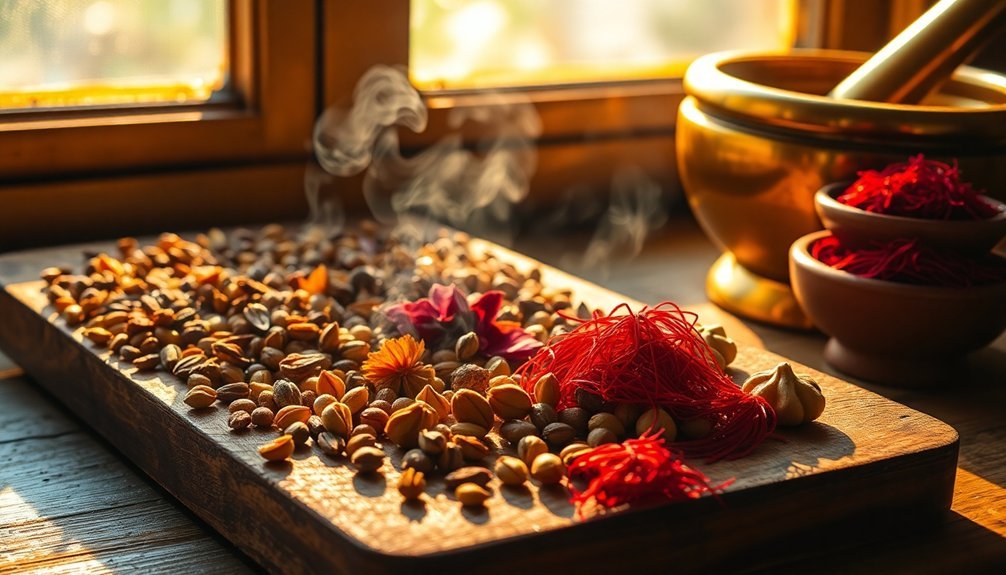
Despite the gentle nature of solar cooking, blooming your spices beforehand remains vital for maximizing flavor.
You'll want to bloom your spices in a separate pan before adding them to your sun-cooking vessel, as the indirect heat won't be sufficient to release those significant fat-soluble compounds. This crucial step releases essential oils that create authentic, rich flavors in your dishes.
For the best results in your solar-prepared dishes:
- Heat a couple tablespoons of high smoke point oil (like ghee or avocado oil) in a pan
- Add whole spices first (cumin, mustard seeds, cinnamon) for 30-60 seconds
- Turn off heat before adding ground spices and aromatics
Once bloomed, transfer your spiced oil mixture to your solar cooking container.
This pre-blooming step guarantees your sun-cooked meals will have the deep, complex flavors you're looking for, even without traditional stovetop heat.
Frequently Asked Questions
Which Spices Should Be Avoided in Sun-Prepared Meals to Prevent Bitter Flavors?
You'll want to avoid star anise, nutmeg, cardamom, turmeric, rosemary, bay leaf, thyme, sage, cilantro, and oregano in sun-exposed cooking, as they can develop bitter flavors when heated by sunlight.
Can Fresh Herbs Survive the Extended Cooking Times in Solar Ovens?
You'll find that fresh herbs can survive solar oven cooking, but you should add them near the end of cooking time. They'll retain more flavor this way than if you include them from the start.
How Do Altitude Changes Affect Spice Measurements in Solar Cooking?
You'll need to increase your spices by 25-50% at higher altitudes since lower air pressure affects flavor intensity. Remember that longer solar cooking times can also reduce spice potency during the process.
What's the Best Container Material for Blooming Spices in Solar Preparation?
You'll want to use glass containers for blooming spices, as they're non-reactive and maintain consistent heat absorption. Their transparency lets you monitor the blooming process, while the airtight seal preserves aromatic compounds.
Does UV Exposure Affect the Potency of Ground Versus Whole Spices?
Yes, UV exposure affects ground spices more than whole ones. You'll notice ground spices degrade faster because their increased surface area exposes more volatile oils to UV light, while whole spices stay protected longer.
In Summary
You'll find these spicing techniques transform your solar cooking from bland to bold. Remember to marinate ingredients longer, use twice the normal amount of spices, and bloom your seasonings before placing dishes in the sun oven. By following these three simple tips, you're ensuring maximum flavor development during the slower, gentler solar cooking process. Don't let the sun's subtle heat fool you – your meals can still pack a flavorful punch.
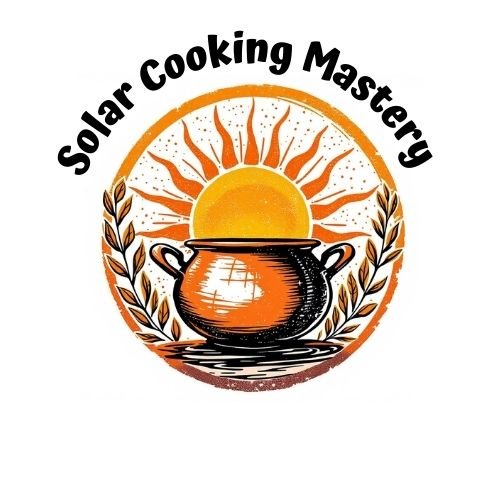
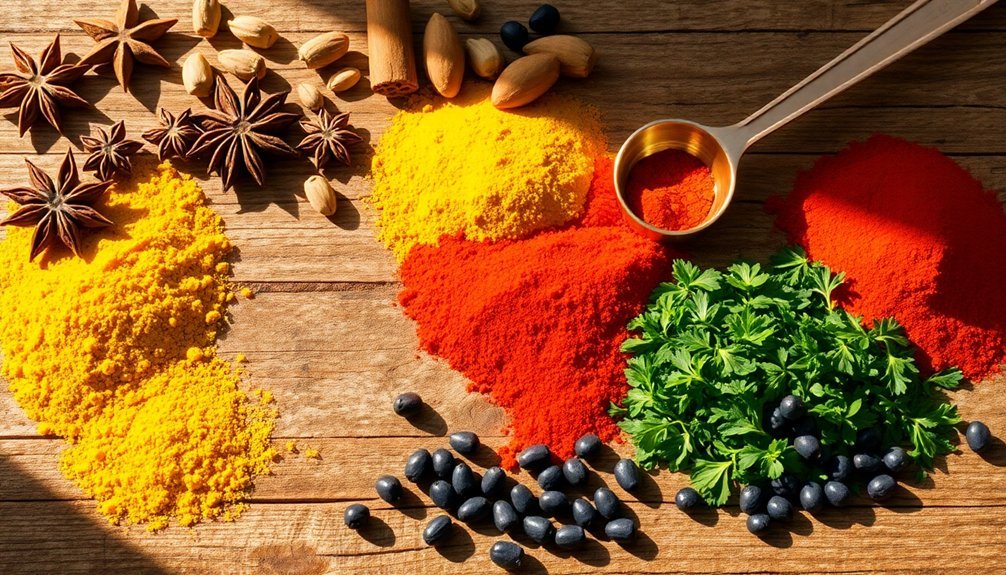
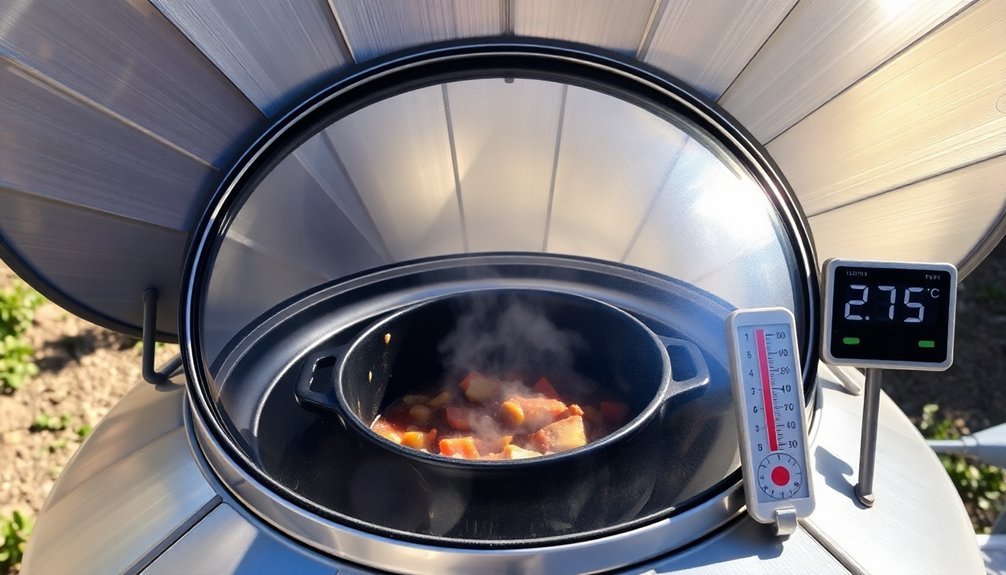
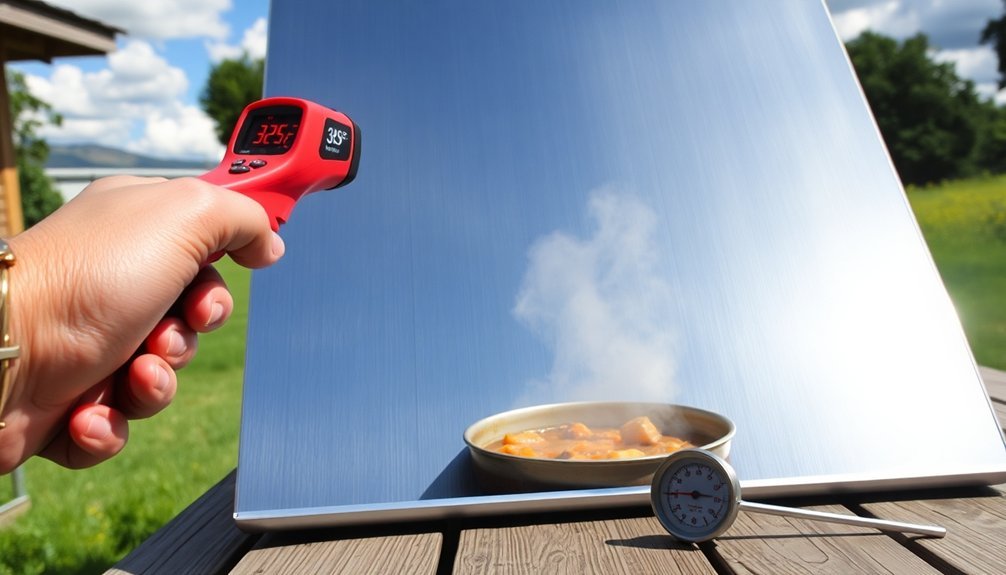
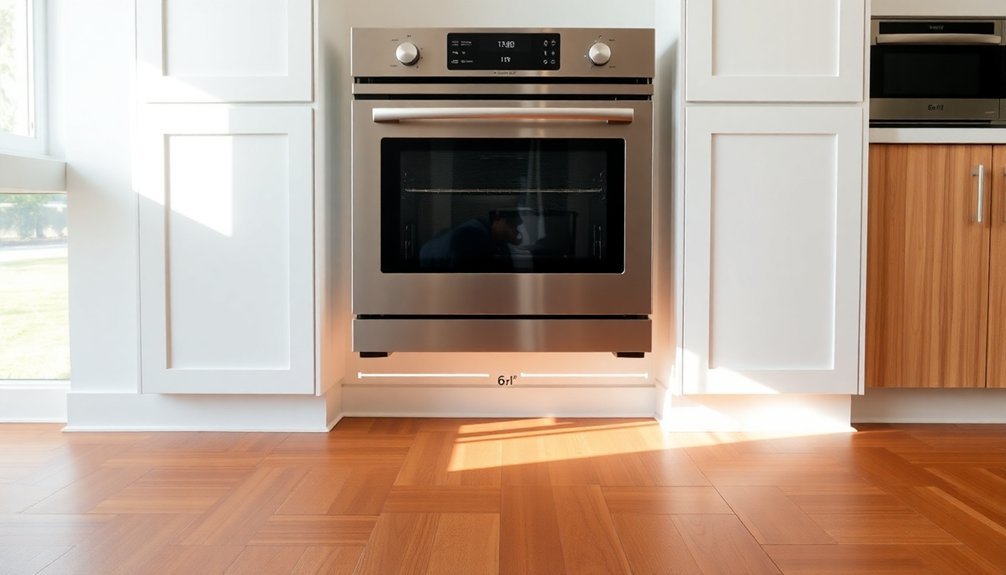
Leave a Reply